Search Results for Tag: EPA
Arctic Council: business as usual with USA under Trump?
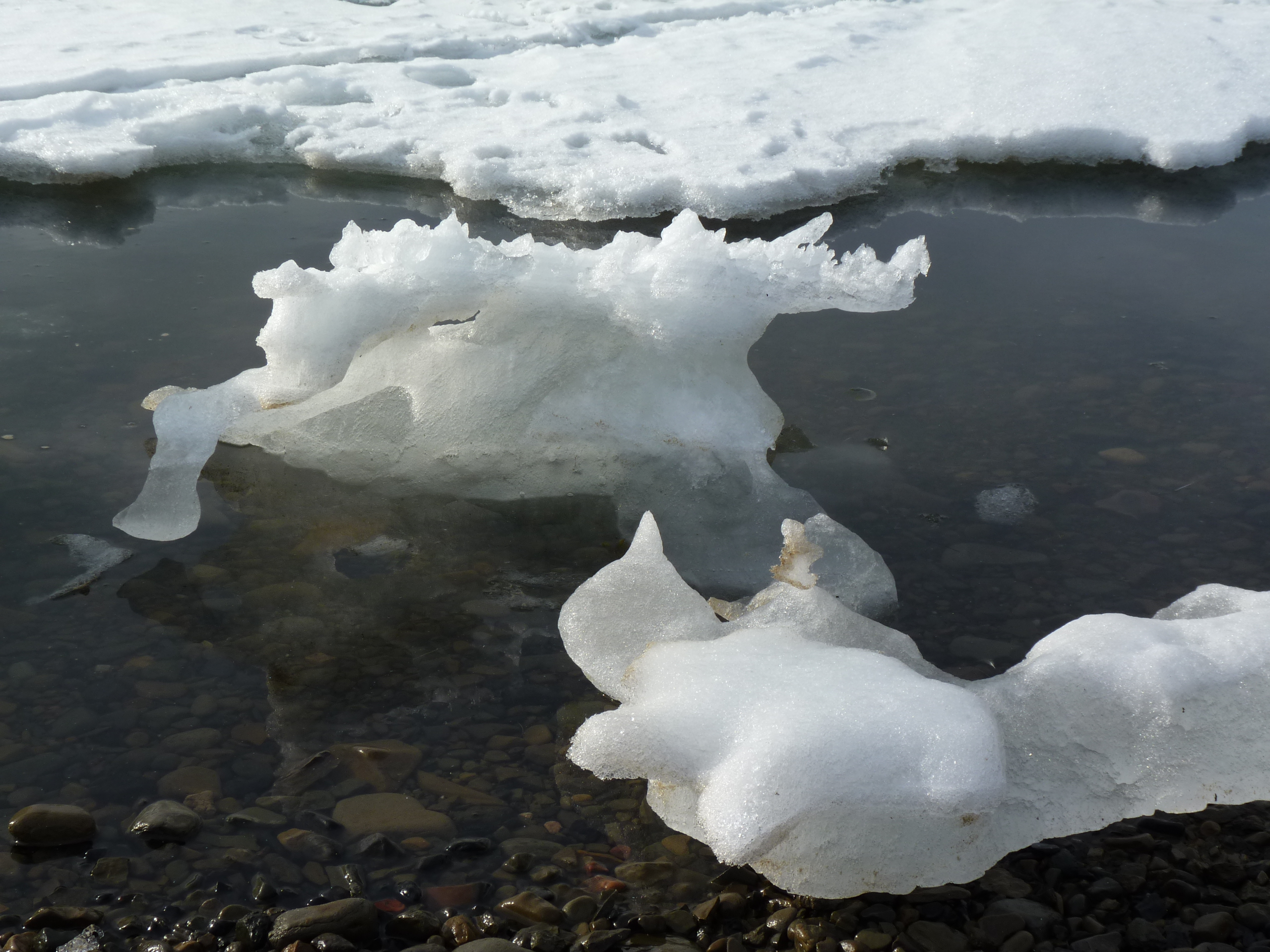
Dwindling sea ice (Pic: I.Quaile)
As the USA comes to the end of its two-year Chairmanship of the Arctic Council, the organization’s “Senior Arctic Officials” met in Juneau, Alaska, last week to prepare for a final ministerial meeting in Fairbanks in May 11th, before Finland takes over the chair. US Ambassador David Balton is currently Chair of the SAO. At a press briefing in Juneau on Friday, it comes as no surprise that one of the questions that interested journalists most was how US Arctic policy might change under the Trump administration and whether that was already happening.
Climate skeptics at the helm?
Given that the Arctic is one of the regions of the globe being affected most rapidly and dramatically by climate change, it does not seem unrealistic to imagine that the climate skeptical views of President Trump and some of his key advisors will have more than just a little impact on the high north.
President Trump’s environment chief Scott Pruitt recently hit the headlines when he again denied that global warming is caused by fossil fuel emissions. The incoming head of the key Environmental Protection Agency (EPA) told the American television channel CNBC he “would not agree” that carbon dioxide from human activity was the primary cause of global warming.
When Pruitt was attorney general in Oklahoma, he helped sue the EPA 14 times. He told CNBC that “tremendous disagreement” remained over human impact on the climate and said the Paris accord amounted to a “bad deal.”
When the foreign ministers of the eight Arctic Council states get together in May, it is US Secretary of State Rex Tillerson, former CEO of the energy giant EXXON, who should be the man in the chair. One of the three priorities of the US chairmanship has been climate change. An interesting combination. So will the ex fossil fuels chief be there?
“We have recommended to Secretary Tillerson that he attend the Arctic Council Ministerial. He is the Chair of the Council. We don’t have a decision yet, as Secretaries of State are busy people. But the last three times the Arctic Council met at the ministerial level, a US secretary of state attended. So it’s my hope that he will come. Certainly the government and people of Alaska would like him to be here.”
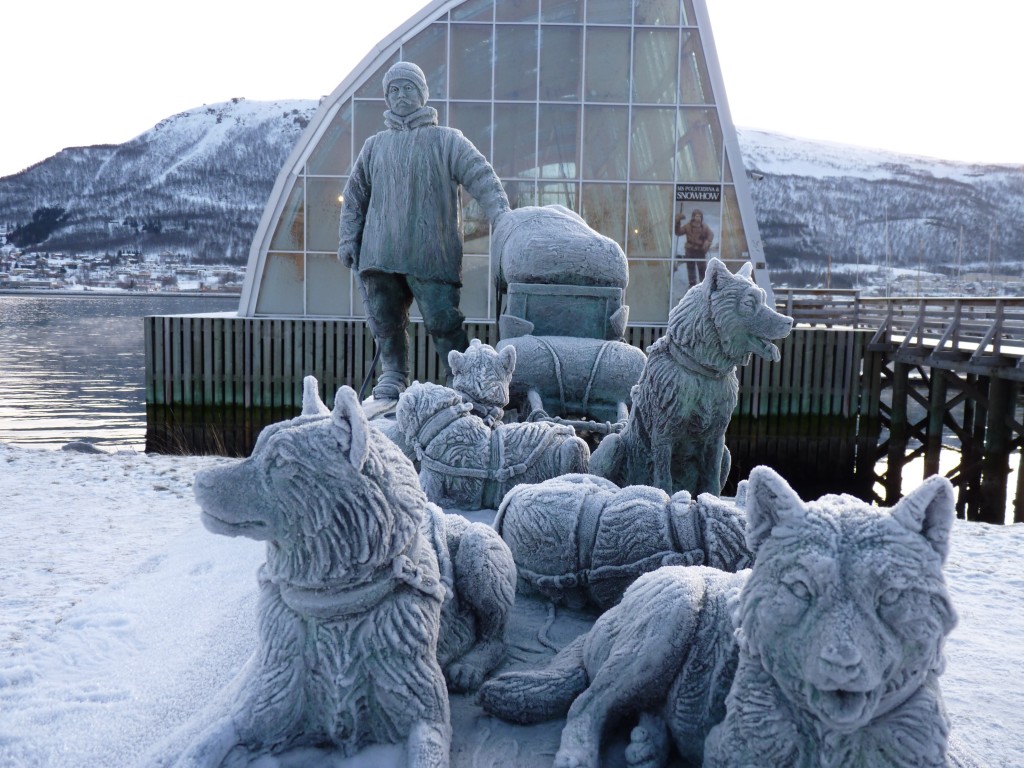
Polar exploration – close to the Arctic Council secretariat in Tromsö, Norway (Pic. I.Quaile)
Continuity or change of direction?
Drastic budget cuts affecting climate and environment and changes in personnel at the State Department and elsewhere in the administration were also on the agenda at the Juneau briefing (which was joined online by journalists around the world). So how is this affecting the work of the Arctic Council?
“So far I see no direct effect on participation in the Arctic Council either in the lead-up to our own ministerial or beyond, but the picture is not entirely clear yet,” said Balton.
“So far”, and “not yet” seem to be key words.
When it comes to whether and if so how US participation in the Arctic Council and US goals and priorities relating to the Council and to the Arctic have changed or may change under the Trump administration, Balton expressed optimism about continuity:
“I have been working on Arctic issues for the US government for the best part of 20 years. And what I can say is that US interests in the Arctic and our goals and objectives for the Arctic have not changed appreciably over time. There was a first statement of US Arctic policy issued during the Presidency of Bill Clinton. It laid out 6 basic goals of our nation in the Arctic. When George W. Bush became our President, they reiterated those very same goals, in the context of another Arctic policy statement that was put out. And when Barack Obama became President there was a question of whether the Bush administration policy would stand. And it did. It was reaffirmed during the Obama administration. And we built on top of the policy something known as the national strategy for the Arctic region. What all these documents have in common is more important than what separates them.”
Balton did accept that there had been changes of emphasis, but not in the fundamental view.
“The real interests of the United States in the Arctic have very much to do with the state of Alaska and its needs and interests, and keeping the Arctic a peaceful stable place is certainly a non-partisan issue in the United States.”

Frozen waves at Barrow, Alaska. (Pic: I.Quaile)
America first in the Arctic?
Presumably, as long as this fits with President Trump’s “America first” policy, all will be well. The question is how that plays out when other major Arctic players put the interests of their own countries first.
“One Arctic” was the overall theme of the US Chairmanship over the last two years. But when it comes to reconciling the geopolitical not to mention economic interests of Arctic states, cooperation might just become a little more tricky.
In September 2016, the International Security Advisory Board (ISAB), a Federal Advisory Committee established to provide the Department of State with a “continuing source of independent insight, advice, and innovation on scientific, military, diplomatic, political, and public diplomacy aspects of arms control, disarmament, international security, and nonproliferation” published a “Report on Arctic Policy” in response to a request to “undertake a study of Russia’s interests, intentions, and capabilities as it has been increasing its presence – both military and civilian – in the Arctic.”
Interesting times ahead.
The wind of change?
So far, the new administration has not turned its attention to the Arctic in particular, Balton told the journalists:
“There have been signals about climate change policy, but even those are not – at least not to me – clear yet. We do know that the Finns intend to highlight the Paris Agreement as part of their chairmanship program, but they have many other aspects they hope to highlight as well, including the sustainable development goals that the United Nations has announced.”
It remains to be seen whether the Trump administration will keep to the Paris Agreement or not. And when it comes to sustainable development in the Arctic, clearly changes in the climate will play a key role.
Between now and the end of the US Chairmanship of the Arctic Council in May, it looks as if Balton and his team will be able to carry on with “business as usual”.
“So the US Arctic Council Programme was developed in the last administration, and is just coming to fruition now. Of course we are in touch with the new administration, which I’m a member of, and for the most part now our guidance is to keep doing what we’re doing. That could change between now and May, but I don’t actually expect it will.”
The question will be what happens after that.
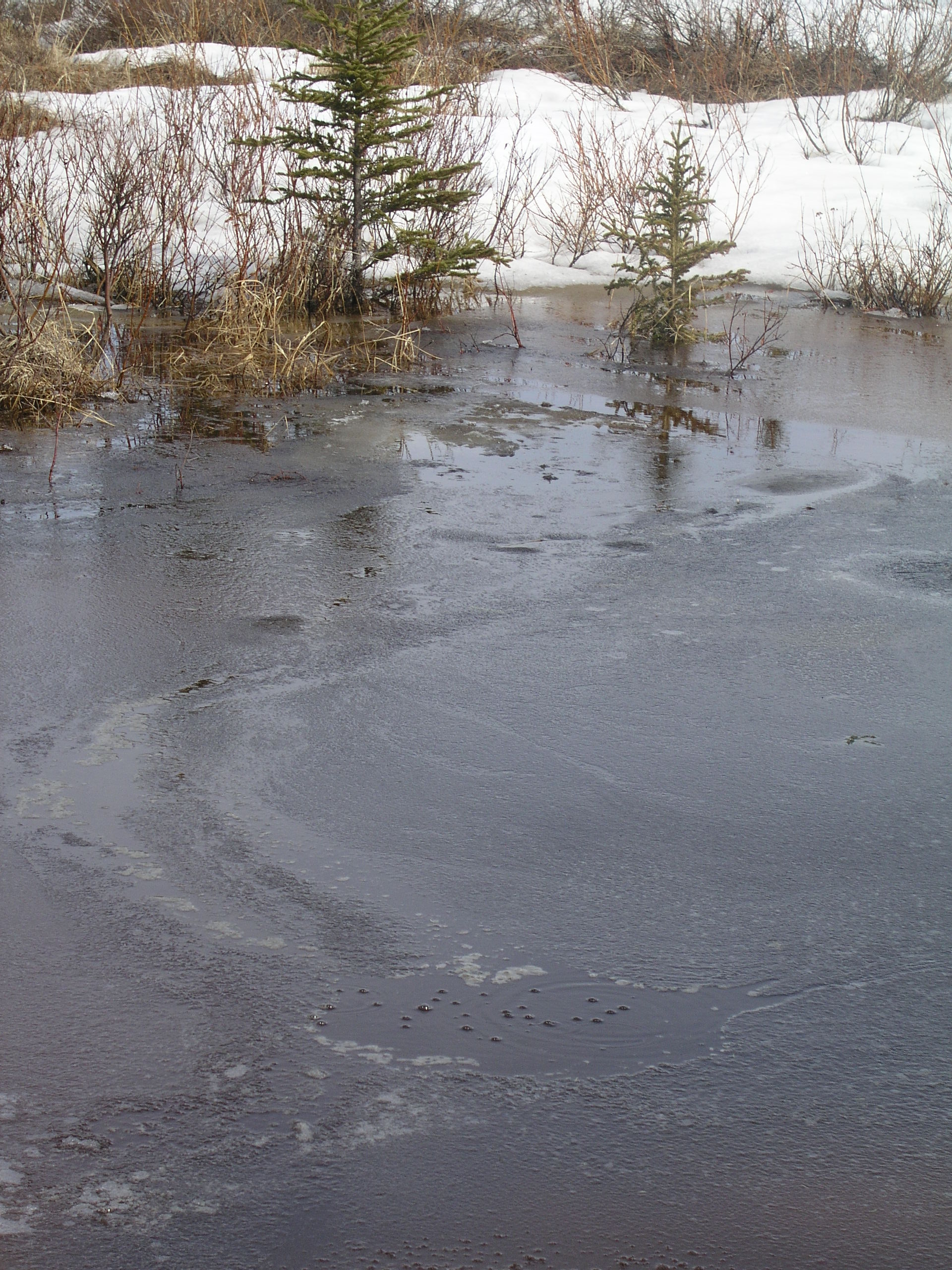
Methane bubbles escape from melting permafrost lake in Alaska (Pic. I.Quaile)
Long-term strategy
The Arctic Council has committed to developing a long-term strategic plan. “One of the things I felt strongly about when the US took over was that we needed to get the Council as a whole to be thinking in more than two-year increments”, Balton said. “Many of the issues concerning the Arctic are longer term. And the Council must find a way to think in longer-term. So that will happen. I expect two years from now we will be finalizing the long-term strategic plan for delivery to ministers in 2019, and probably look ahead at least ten years. “
So what effect will the change of US administration have on that? Some of the journalists listening to the briefing seemed skeptical about the idea that nothing appears to have changed, although the new new administration has hugely different policies. Again, this could well be just a matter of time:
“I think it’s fair to say that there has been no fundamental change in the way that the US is participating in the AC yet. This administration like past administrations may wish to put its own stamp on US Arctic policy. That may occur at some point. But it has not happened yet.”
Monitoring a rapidly changing Arctic
In response to a question about ocean acidification, the US ambassador described the increase in ocean acidification by 30% worldwide as “staggering” and said it was quite clearly caused by CO2 emissions.
There are not enough platforms in the Arctic to monitor this fully, he said, describing it as “one of our ambitions” to change that.
That brings us back to the crucial role played by US bodies, especially the National Oceanic and Atmospheric Administration (NOAA) and the National Aeronautics and Space Administration (NASA) in monitoring the planet.
Today, more than thirty leading Florida scientists published an open letter to President Trump, coming out strongly against White House’s proposed cuts to the earth sciences programs at NASA and NOAA. They call on the President to recognize climate change and resulting sea level rise, which is, of course, of existential importance to Florida in particular.
Concern is mounting in the scientific community that the new administration will try to silence efforts to educate the public on climate change.
Christina DeConcini, Director of Government Affairs at the World Resources Institute, whom I interviewed recently about the Trump administration’s climate and environment policies, said in a statement on today’s letter:
“The proposed budget cuts are an affront to the integrity of science and a large body of crucial work on the impacts of climate change that increasingly damage the United States. As the most vulnerable U.S. state to sea level rise, Floridians know this very well; it persistently threatens their infrastructure, communities and homes.
“Research from NOAA and NASA is foundational for assessing and effectively responding to disruptive flooding and costly extreme weather damages.”
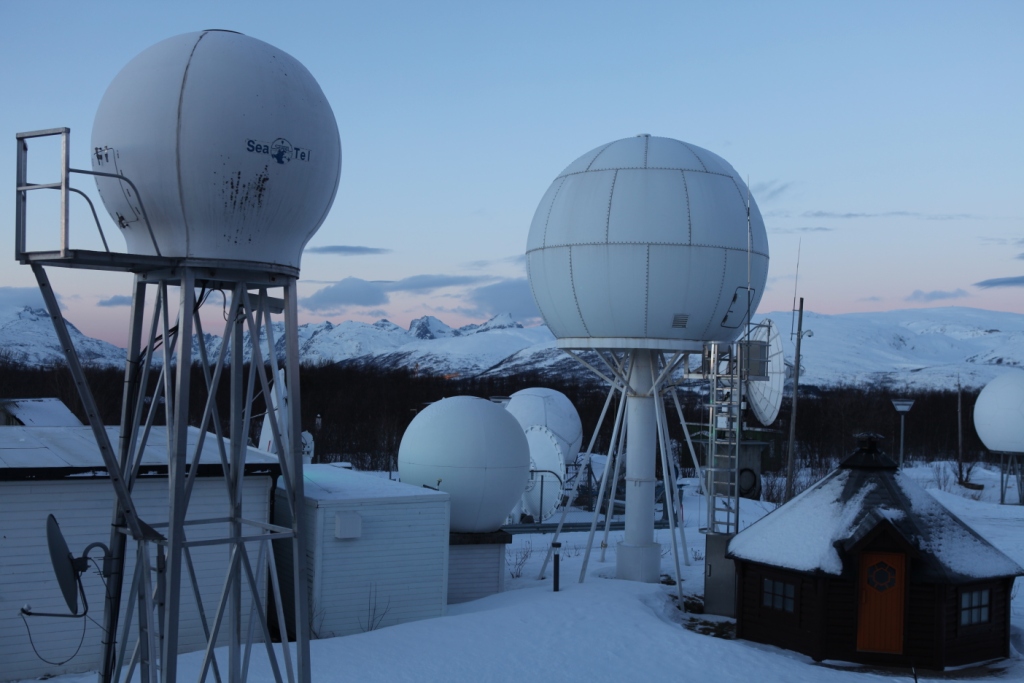
Satellite data is revolutionizing our knowledge of ice. (Pic. I.Quaile, Tromso)
Science first
In the letter, the scientists write:
“American scientists have historically been at the forefront of scientific discoveries and innovation. America should invest heavily in our effort to understand our homeplanet and be aware of how physical changes will impact industry and society.”
They make a powerful plea for continuing support for NOAA and NASA:
“NASA and NOAA Earth science programs monitor and understand changes in our water resources and our soil. They track the conditions that affect the food and medicines we get from the oceans. These conditions impact agriculture, our military, businesses, and major industries. It is imperative to support programs that explore our planet – at NOAA and NASA and across the government. The work of NOAA and NASA is vital to life on Earth and must be continued”, the scientists write.
“NASA and NOAA’s work capture the history and the present state of the oceans, land, fresh water bodies, and atmosphere. They make it possible for us to observe changes to the planet we live on, from the vantage point of space.
For example, NASA satellites are responsible for providing the first global measurements of aerosols in our atmosphere and for understanding ozone. NASA satellites from the GRACE and ICES missions discovered unexpected rapid changes in Earth’s great ice sheets (…)”
So there we have it. Ultimately, the work of the Arctic Council cannot be separated from the issue of climate change and scientific monitoring.
Perhaps it was fortunate that the US Presidency of the Arctic Council coincided with the Obama period in office, where some decisions were taken in the interests of the region.
It will be up to Finland to direct operations for the next two years, from May onwards. But, clearly, regardless of what happens in the Arctic Council, the overall policy of the new US administration will have a key impact on what happens in the Arctic.
The latest SWIPA, (Snow, Water, Ice and Permafrost in the Arctic) report on the cryosphere will be presented to the ministerial gathering in May. It is unlikely to make happy reading. Climate change will have to be a major factor. And given the Trump administration’s policies so far on that issue, the work of the Arctic Council will not be able to carry on regardless.
Will new climate scientist on board influence Exxon?
Last year I had an interesting guest in the studio here at Deutsche Welle. We talked for a good half hour about climate change and the ocean and the need for the Paris Agreement to be put into action, and whether we can still save the Arctic ice as we have known it in our lifetimes.
Excerpts from the interview were broadcast on Living Planet and published online.
Susan Avery is an atmospheric scientist. She was President and Director of the renowned Woods Hole Oceanographic Institute from 2008 to 2015, and became a member of the scientific advisory board to UN Secretary General Ban Ki Moon in 2013. She was in Bonn for a lecture organized by Björn Müller-Bohlen from the department of strategic partnerships at the Forum of International Academic Sciences in Bonn, to explain to people here how climate change is affecting the ocean.
I was surprised to say the least when I saw that from the beginning of February Dr. Susan K. Avery had been elected to the board of directors of ExxonMobil.
Topsy-turvy world?
So the former Exxon chief Rex Tillerson has taken the key post of Secretary of State in the Trump administration, climate skeptic Scott Pruitt takes over the EPA, the world worries about the future of the climate and the environment – and a leading climate scientist has joined the “largest publicly traded international oil and gas company and one of the largest refiners and marketers of petroleum products”, as ExxonMobil describes itself. It is also at the centre of a huge controversy over claims that it denied climate change, covering up facts and funding climate skeptic bodies. Interesting times indeed. (The Dawn of the Trumpocene?) What are we to make of it all?
I emailed Dr. Avery to try to arrange another interview to discuss her motivation and expectations. She did respond swiftly, telling me she was “honored to be elected to the Board and look forward to serving in that capacity.” But interview requests are being handled by Exxon.
Reactions to her appointment have been mixed, ranging from those who see this as a mere greenwashing type of move by Exxon, and those who think this represents a gradual shift in thinking in the corporation (pragmatic shift to renewable energies given the problems ahead for fossil fuel companies?) and the optimists who think this could possibly even be a chance for a climate expert to influence the policies of the fossil fuel giant and a sign that the times are ‘a changin’.
From the “horse’s”mouth
I decided to have another look and listen to the interview I recorded with Dr. Avery last year, to remind myself and those who will be watching her actions with interest, of what she stands for when it comes to protecting the climate, the ocean and the Arctic.
She is certainly in no doubt about the human factor in climate change. When I mentioned that we humans had been “interfering” with the climate, she laughed good-naturedly at my under-statement, and went on to elaborate on how we are increasing the temperature of the atmosphere by infusing carbon into it. She clearly named fossil fuels as a cause. So what, I wonder, will she be telling the board of ExxonMobil?
Our subject was the effect of greenhouse gas emissions on the oceans in particular. She stressed that while 25 percent of the carbon dioxide we release goes into the atmosphere, a stunning 93 percent of the extra warming created is in the ocean. I went on to ask her about the impacts:
“The carbon dioxide we’ve put into the atmosphere already and the heating associated with that means that we’re already pre-destined for a certain amount of global temperature increase. Many people say we have already pre-destined at least one and a half degrees, some will say almost two degrees. That’s why it’s really important to address the warming questions. And I was really pleased to see the Paris Agreement finally signed off on.”
Fossil fuel threat to the ocean
With the future of US participation in implementing the Paris Agreement very much up in the air under the Trump administration, one wonders how Avery is going to push the decarbonisation of the economy necessary to keep anywhere near the two degree limit, on the board of one of the world’s biggest oil and petroleum concerns.
She also stressed in her talk with me the huge threat to the food chain posed by ocean acidification, as carbon dioxide emissions change the PH of the ocean.
“Our coral reef systems and a lot of our ecosystems in the ocean are having a battle with warming, and those ecosystems that involve shell production and reproduction, as in our reef systems, are also battling acidification issues. This is really critical, because it attacks a lot of the base of the food chain for a lot of these eco-systems. “
Another of the threats to the ocean and the creatures in it is pollution, and Avery told me her time as head of Woodshole was a time of “many crises in the ocean” – including the Deep Water Horizon oil spill:
“That was a real challenge for us in terms of looking at the technologies we have in a different way, solving a different type of problem, and from these crisis moments we learned a lot about our science and our technology, and how to improve it and go forward.”
Well, here’s hoping that knowledge and Dr. Avery’s expertise here will help the company where she is now on the board.
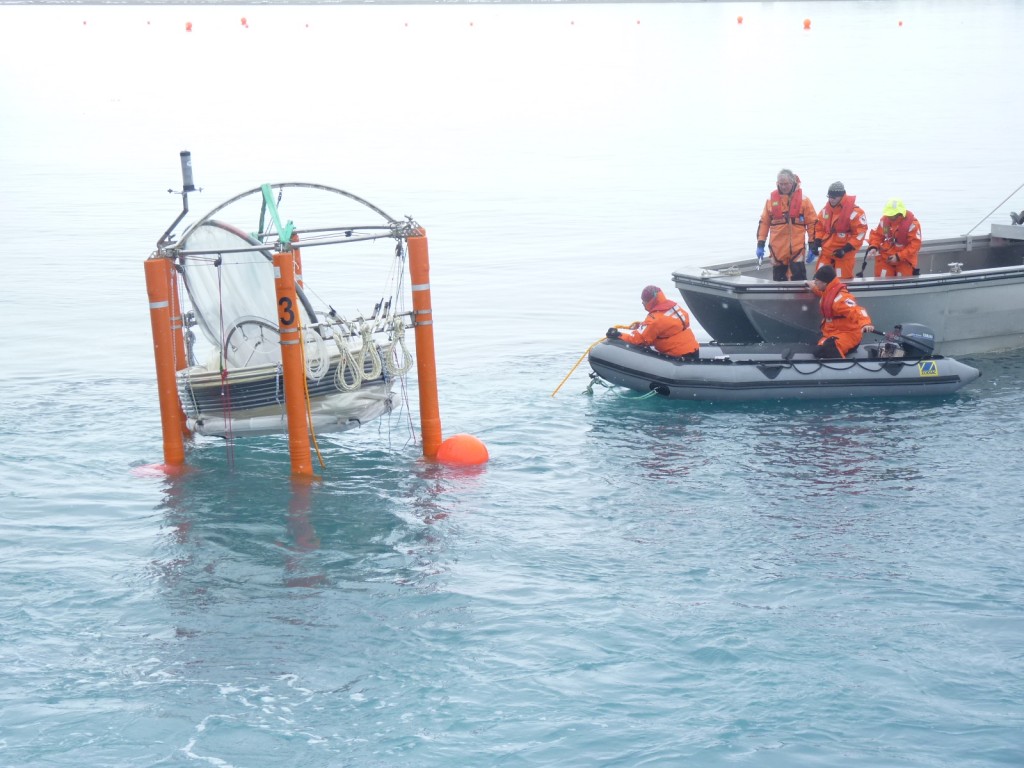
Scientists are concerned about the effects of ocean acidification. This mesocosm is monitoring in Arctic waters. (I.Quaile)
Kudos for the journos
Another point that came out of our interview was Avery’s firm belief in the key role the media have to play in explaining what is happening to our climate and environment to “ordinary people”.
“It is things like Living Planet and others that really begin to educate people and involve people in understanding their environment and their planet,” she said in the DW studio.
As host and producer of Living Planet together with my colleague Charlotta Lomas, it was good to have that acknowledgement from a leading scientist and adviser to the UN. Avery also mentioned progress in recent decades in raising public awareness of environmental issues, such as pollution or acid rain, thanks not least to media coverage.
Unfortunately that job is not made any easier – especially in the United States – with an administration that tries to gag journalists and, it seems, any organization that does not spread the information the government think should be spread.
Motives and methods
So what motivates someone like Susan Avery to take on a controversial position like board membership on a company whose main business results in harmful changes to the planet which she has been working for years to publicise? Perhaps another snippet from the interview can shed some light, when I asked my guest Avery how she had come to be a member of the board of advisors to Ban Ki Moon (not that I would compare that to joining ExxonMobil).
“I was intrigued by the opportunity to play on a stage level that was very high politically, and making sure that science was interfaced in a number of dimensions, into the policy and decision-making process at that level. The committee itself is a wonderful board in terms of the different disciplines represented, different countries represented, different perspectives we all have on the science and the environment, and on human health issues, that the UN needs to be cognizant of.”
Clearly, this is a woman who likes to be in influential positions – and to bring different camps and expertise together:
“We talked a lot about science, the policy-society interface, the role and engagement of stakeholders, those are governments at all levels, the business community, and conservation.
What about the Arctic?
Of course one of the Iceblogger’s most urgent concerns is what climate change is doing to the polar regions. With record temperatures in the Arctic and record low sea ice cover, I asked Avery to sum up the impacts for our Living Planet listeners. She expressed her concern that “we are beginning to see a very rapid increase in ice loss in the Arctic”. She cited the melting of the big land ice glaciers as a major contributor to sea level rise. She talked of how not only atmospheric temperature but warming ocean waters are degrounding glaciers and melting ice from below:
“That is a major concern for sea level rise, but also because when the land-based ice comes into the ocean, you get a freshening of certain parts of the ocean, so particularly the sub-polar north Atlantic, so you have a potential for interfacing with our normal thermohaline circulation systems and (this) could dramatically change that. Changes in salinity are beginning to be noticed. And changes in salinity are a signal that the water cycle is becoming more vigorous. So all of this is coupled together. What’s in the Arctic is not staying in the Arctic. What’s in the Antarctic is not staying in the Antarctic. I would say the polar regions are regions where we don’t have a lot of time before we see major, massive changes”.
So let us hope Dr. Avery will be able to convince her fellow board-members and the decision makers at ExxonMobil about that – and about what has to happen. Fossil fuel emissions in general have got to go down. And the fragile Arctic in particular is in need of protection. Clearly, she has her work cut out for her.
Is there still time?
Reporting Avery’s appointment to the ExxonMobil board, the news agency AFP quotes her as saying:
“Clearly climate science is telling us (to) get off fossil fuels as much as possible.”
I asked her whether she believed, given that we have already put so much extra CO2 into the atmosphere and the ocean, that there was any way we would be able to reverse what is happening in the Arctic. Her reply – unsurprisingly – was not too reassuring:
“I don’t have an answer, to be honest. I think we’re still learning a lot about the Arctic and its interface with lower latitudes, how that water basically changes circulation systems, and on what scale. (…)We know so little, about the Arctic, the life forms underneath the ice (…) And I think it’s really important, because the Arctic will be a major economic zone. We’ve already seen the North-West Passage through the Arctic waters, we’re going to see migration of certain fisheries around the world, and we don’t even know completely what kind of biological life we have below that ice. We have the ability to get underneath the ice now. I call these the frontiers, of the ocean, and that includes looking under ice. It’s a really exciting time.”
If that excitement can be put into protecting the fragile polar ecosystems rather than taking advantage of our emissions misdeeds to date to use easier access for commercial exploitation, I am all for it.
ExxonMobil remains a primary target of environmentalists. It has been the subject of investigative reports by environmental news nonprofit Inside Climate News and others, saying it “manufactured doubt” about climate science even while contradicted by research by its own climate scientists. The company says the reports are biased, but faces government investigations over the controversy. In January, a Massachusetts court ruled the oil giant must turn over 40 years of documents on climate change, in a win for Massachusetts Attorney General Maura Healey, who has described the probe as a fraud investigation. ExxonMobil has countersued against Healey, arguing she lacks jurisdiction in the matter.
As I indicated above, there are environmentalists who were not impressed by the appointment of a climate scientist to the fossil fuel giant’s board. AFP quotes Shanna Cleveland of Ceres, a nonprofit group that works on shareholder actions to pressure companies to address climate change. She called the move a “really good first step, but not much more than that”, and fears Susan Avery could be a “lone vote in the wilderness” on climate change given ExxonMobil’s record on the issue.
The climate advocacy group 350.org dismissed the appointment as “little more than a PR stunt.”
Scientists to the fore
But at a time when some critics say the Trump administration is threatening environmental democracy in the USA, I would prefer to see Dr. Avery’s new position as a move in the right direction, if a tiny one.
With scientists gearing up to march on Washington in the not-too-distant future, we can do with experts who acknowledge, understand and call for action on climate change on every level, in every corner.
Susan Avery described her time on the UN scientific advisory board in her interview with me here in Bonn as as “a fun exercise.” In the current climate, I cannot imagine the same will apply to being the climate advocate on the board of a controversial fossil fuels giant like ExxonMobil.




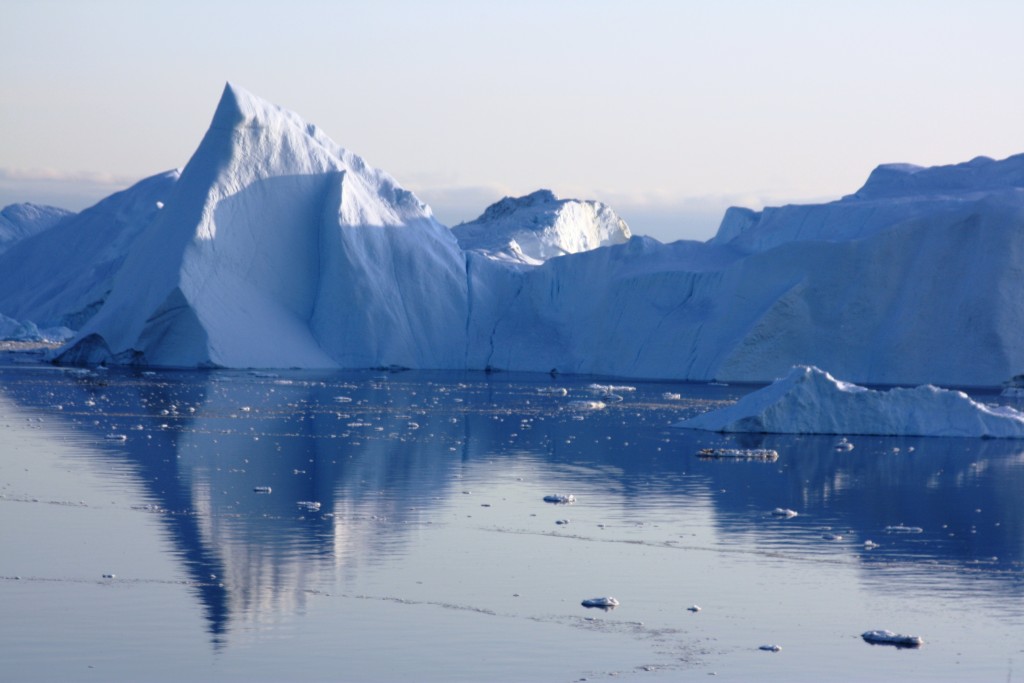
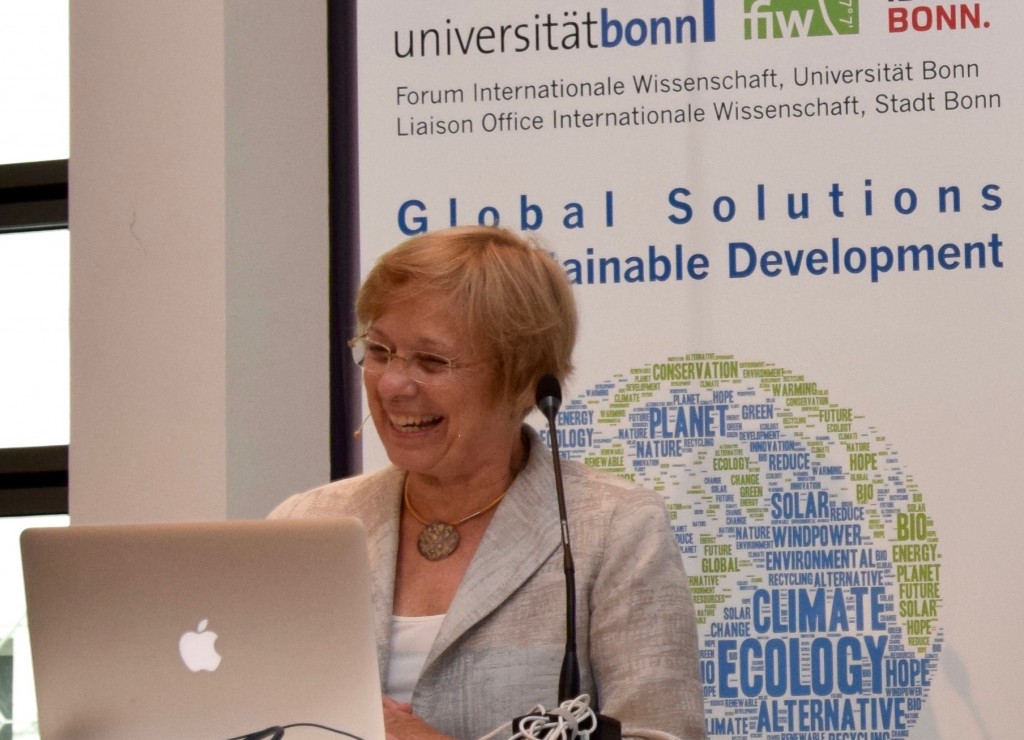
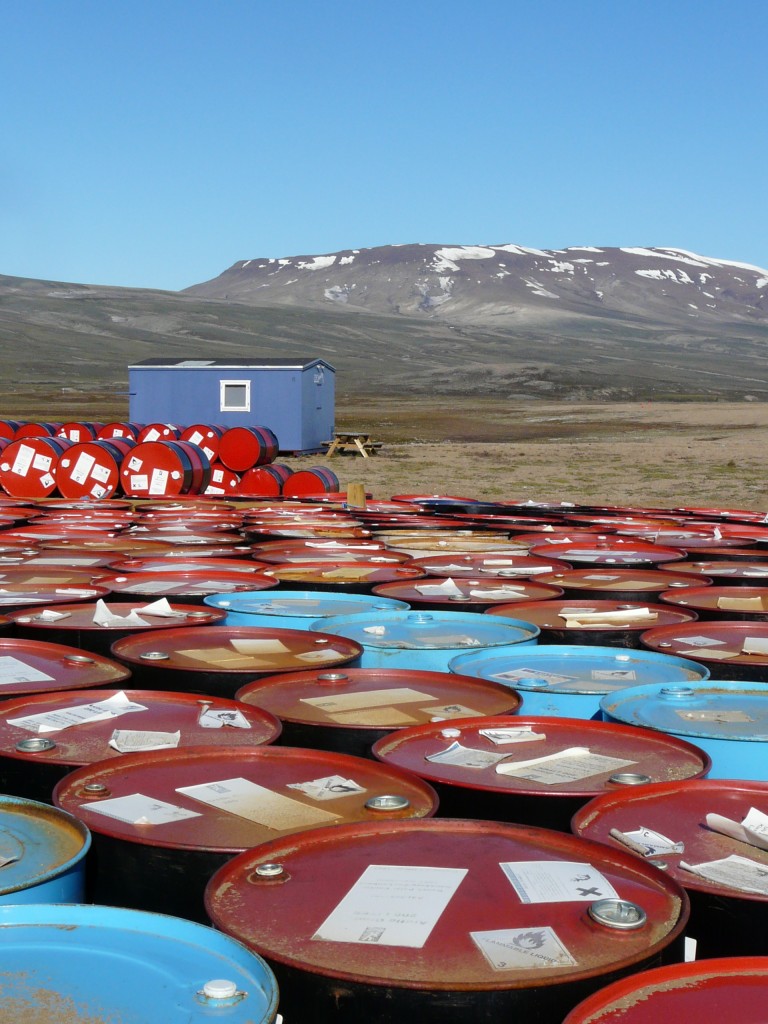
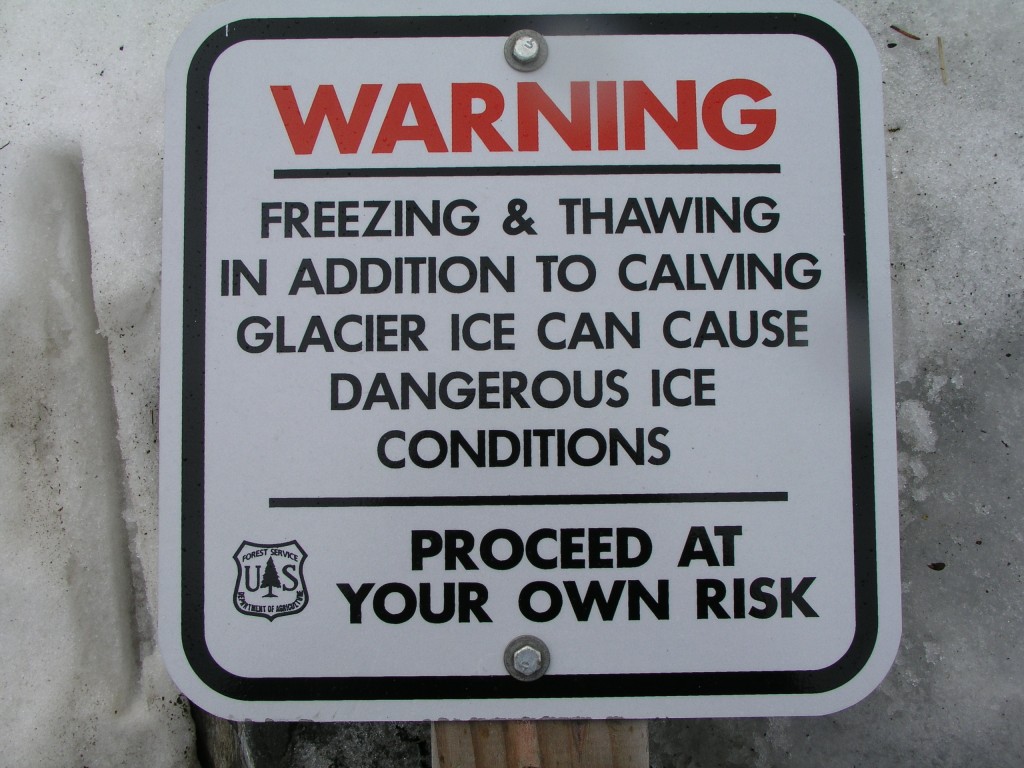
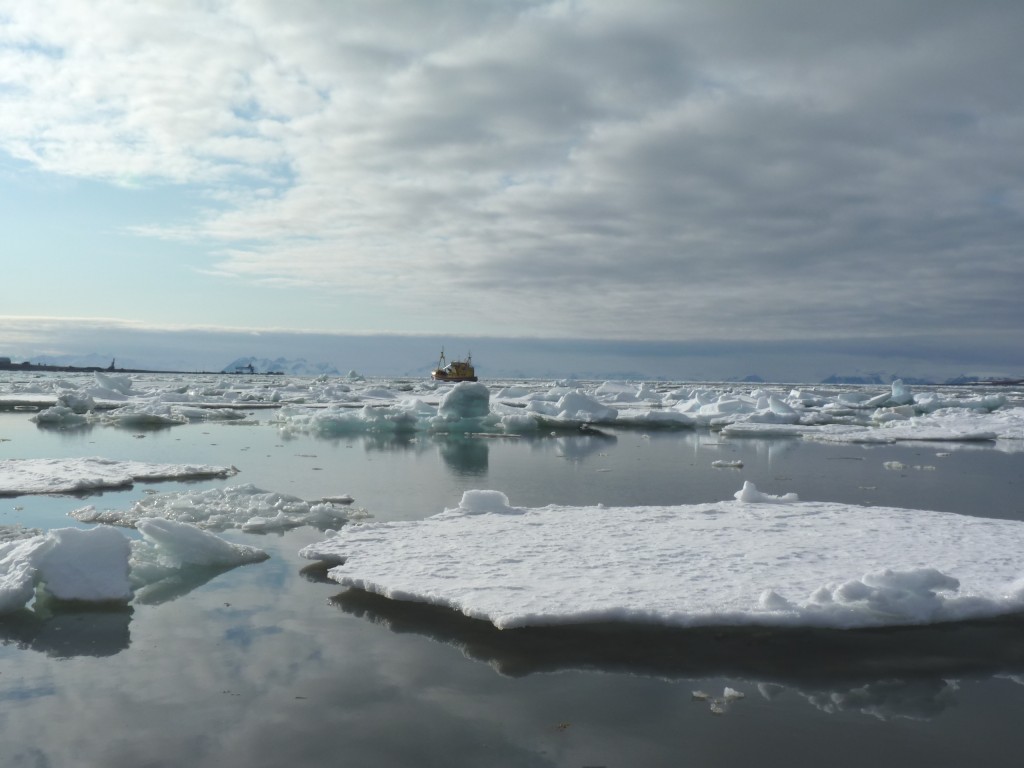












Feedback